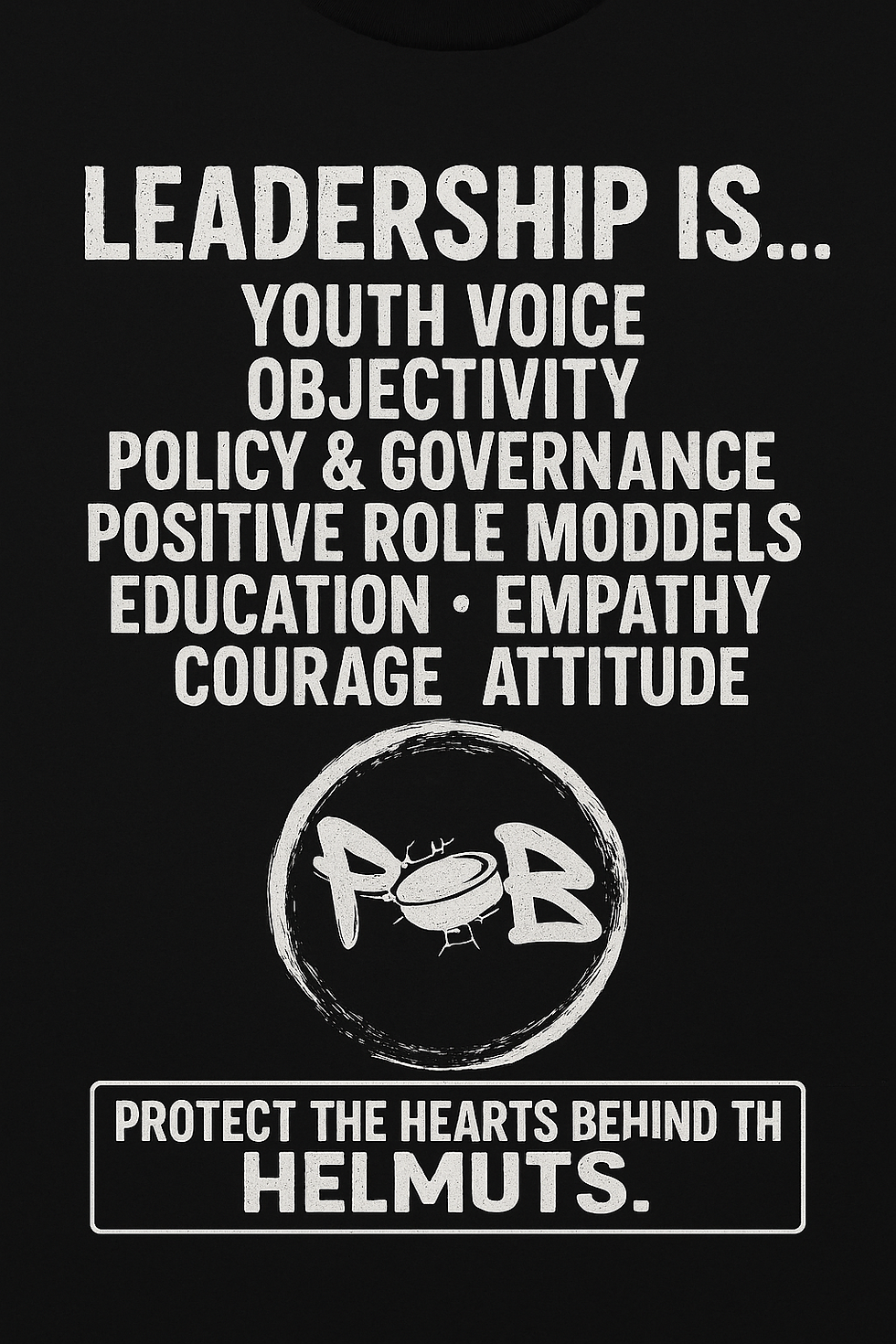Beyond Growth Mindset – Promoting Lasting Change
- Puck Off To Bullying
- Aug 21
- 3 min read
The concept of a growth mindset—the belief that abilities and intelligence can be developed through effort, strategies, and feedback—has been one of the most influential ideas in education and sports psychology over the past two decades.
Coined by Carol Dweck (2006), growth mindset programs are widely promoted to help young athletes build resilience, embrace mistakes, and stay motivated. It is based on the idea behind cognitive behaviour techniques where brain training- or cognitive restructuring- produces results. You changed disorted thinking into balanced and realistic thinking and the results can be powerful.
In minor hockey, many coaches and parents now encourage kids to “keep practicing, keep learning, and use positive affirmations to stay focused on the goal.” There are dozens of mindset trainers and coaches, and even more ideas and strategies. POB believes they serve a purpose as an important tool in mental training, and developing the coping skills that help kids deal with maltreatment or bullying. We continually develop and promotes these ideas as a way to empower kids in hockey themed ways.
Kids benefit when they see effort as valuable and mistakes as learning opportunities. Research consistently shows that growth mindset interventions can increase motivation, persistence, and academic or athletic outcomes (Claro, Paunesku, & Dweck, 2016; Yeager & Dweck, 2020).
Why Growth Mindset Works
It helps players reframe mistakes as learning opportunities.
It encourages persistence when skills don’t come easily.
It fosters long-term motivation instead of “talent myths.”
It can buffer against performance anxiety by focusing on effort.
Combined with practices like mindfulness and being present, hockey players facing the natural ups and downs of skill development, can find these strategies empowering.
Where Growth Mindset Falls Short
Yet it is important to recognize that sometimes growth mindset is not enough on its own. When we stop at “just work harder” or “learn from mistakes,” we risk ignoring deeper issues. Or negating the experience of the child, who may not be able to process or apply the strategies yet.
Growth mindset often works at the cognitive level where changing the narratives around how athletes interpret effort and mistakes can be powerful. What it doesn’t always address is the internalized beliefs and hurts caused by bullying and maltreatment.
A young player who has been belittled by a coach, excluded by teammates, or targeted by bullying may carry shame, self-doubt, or trauma. Telling them to change your thoughts and change your world can fall short from healing those wounds. In fact, it can sometimes make them feel like the failure is their fault for not being “resilient enough.”
Defining the Deeper Issues
Bullying: A repeated pattern of harmful behavior (verbal, social, or physical) where there is a power imbalance, often leaving the victim feeling isolated, fearful, or ashamed (Olweus, 1993).
Maltreatment: According to Safe Sport frameworks, maltreatment includes psychological abuse, neglect, harassment, and other behaviors that compromise an athlete’s emotional and physical safety.
In hockey, maltreatment might look like constant benching without explanation, favoritism, derogatory comments, or pressuring a child beyond healthy limits. These experiences go beyond mindset—they affect identity, self-worth, and long-term mental health.
Going Beyond Growth Mindset
If we truly want resilience in hockey culture, we need to move deeper than slogans and posters. This means:
Addressing psychological safety: Creating environments where kids feel safe to speak up without fear of ridicule or retaliation.
Challenging internalized shame: Helping players understand that maltreatment reflects the system’s failures, not their worth.
Building coping skills: Teaching mindfulness, emotional regulation, and self-compassion alongside growth mindset.
Changing governance: Including youth voice in policies and solutions. Holding coaches, associations, and parents accountable for bullying and maltreatment, not just telling kids to “toughen up.”
Growth mindset has value. Beyond mindset, we need systems, policies, and supports that address the real wounds caused by bullying and maltreatment. Only then can players build genuine resilience that protects the hearts behind the helmets.




Comments